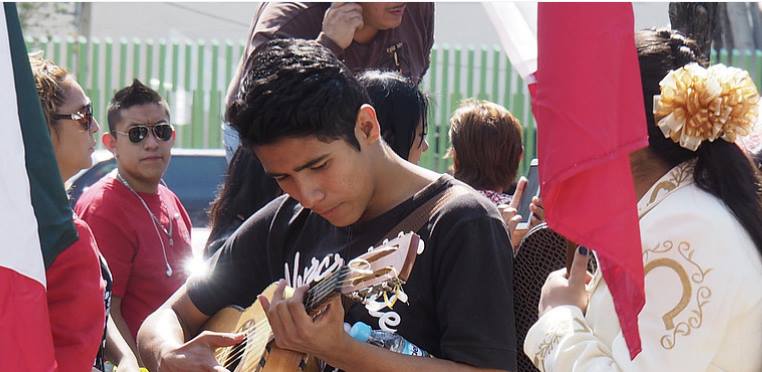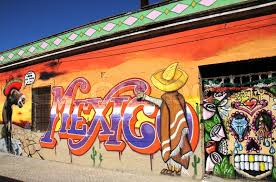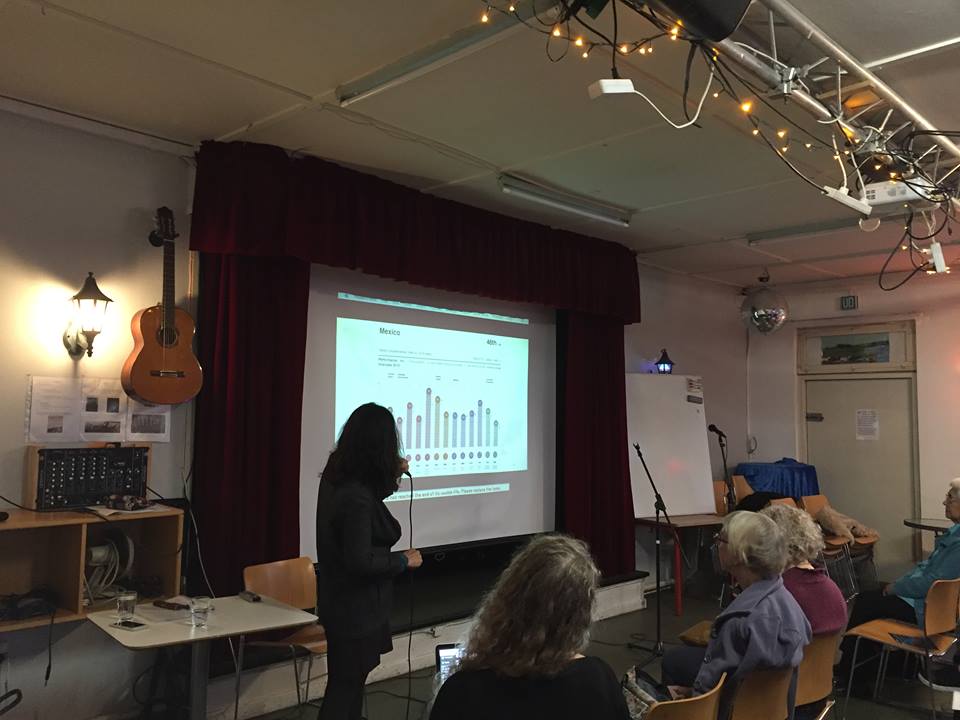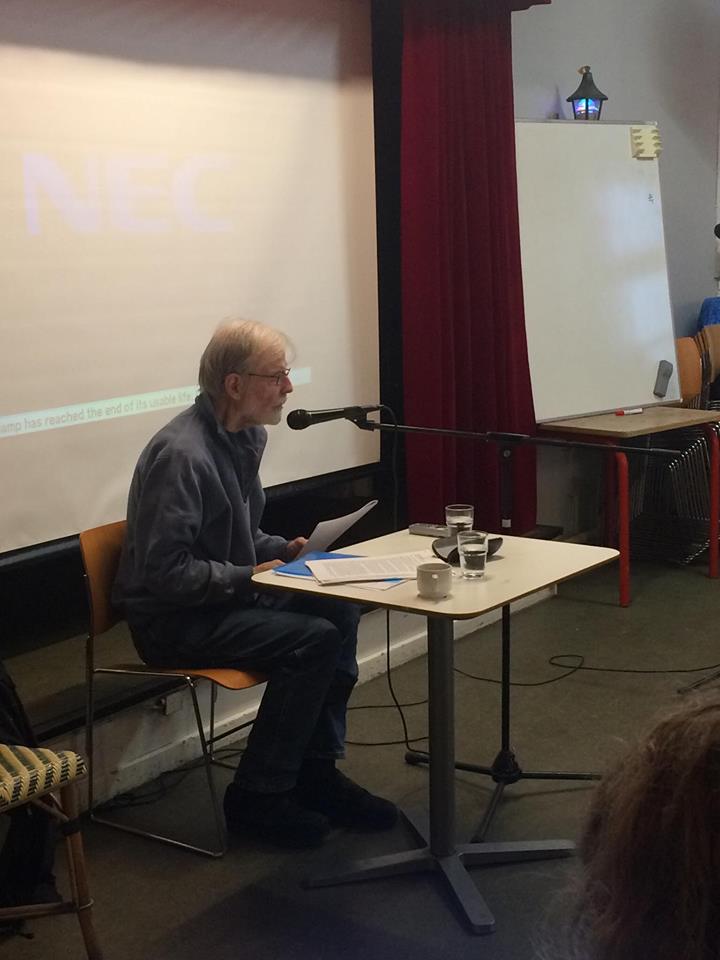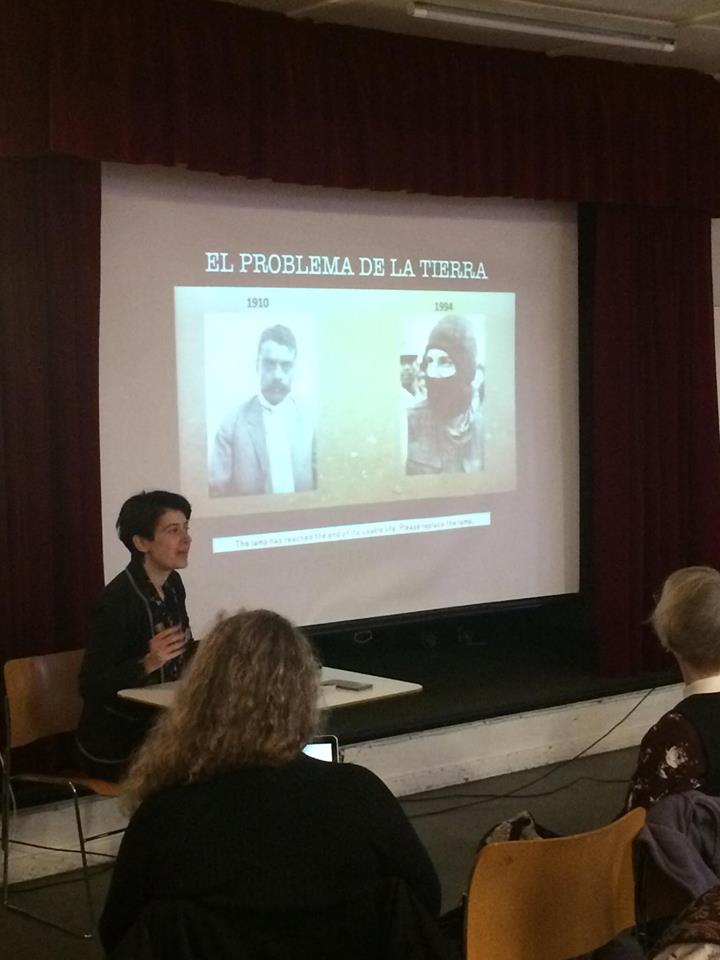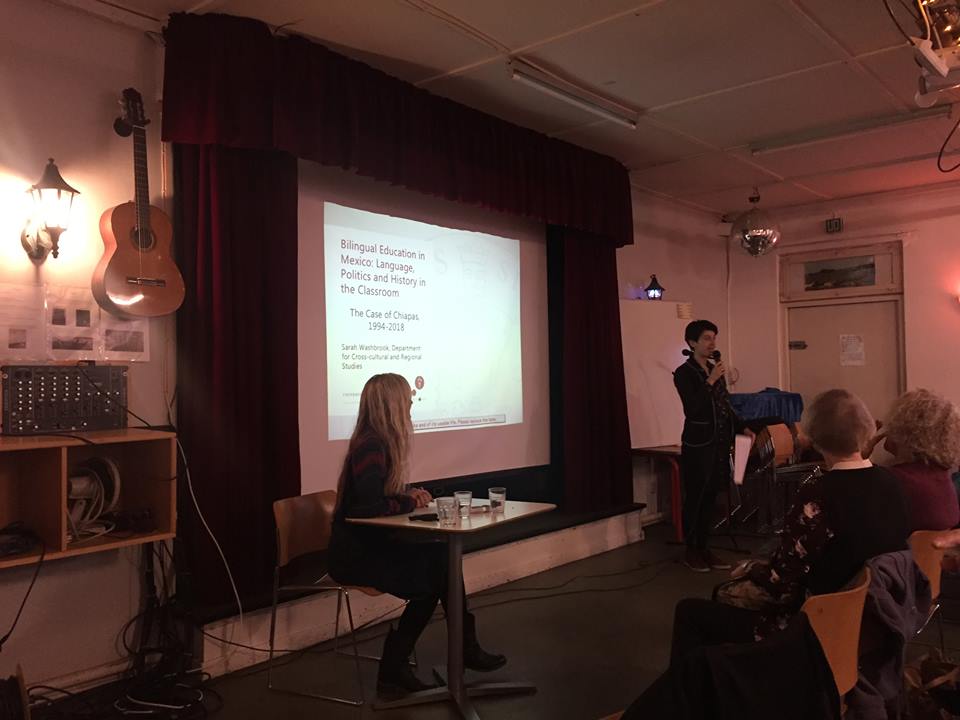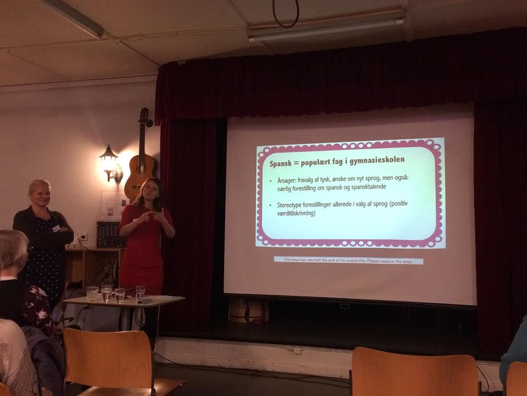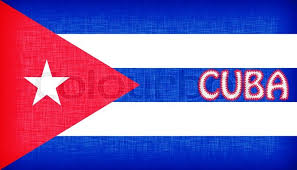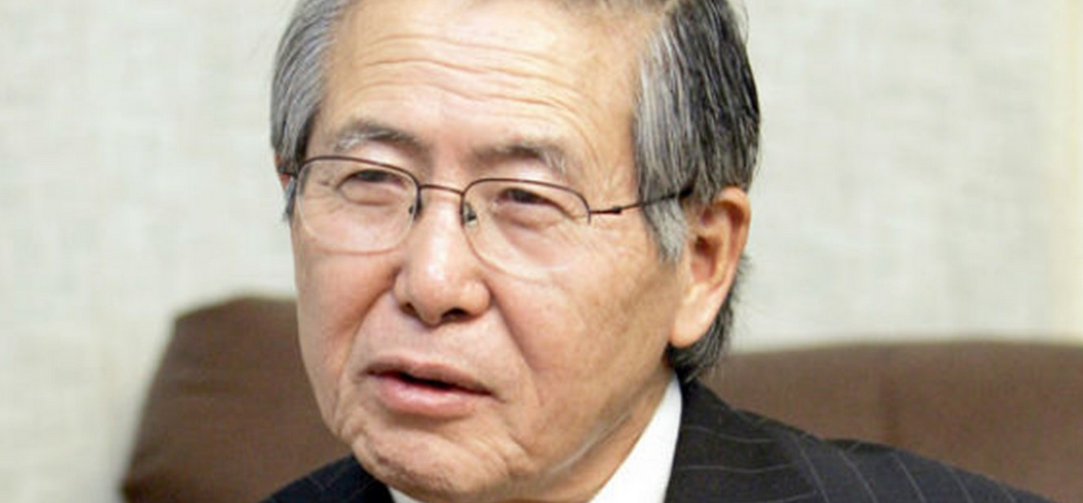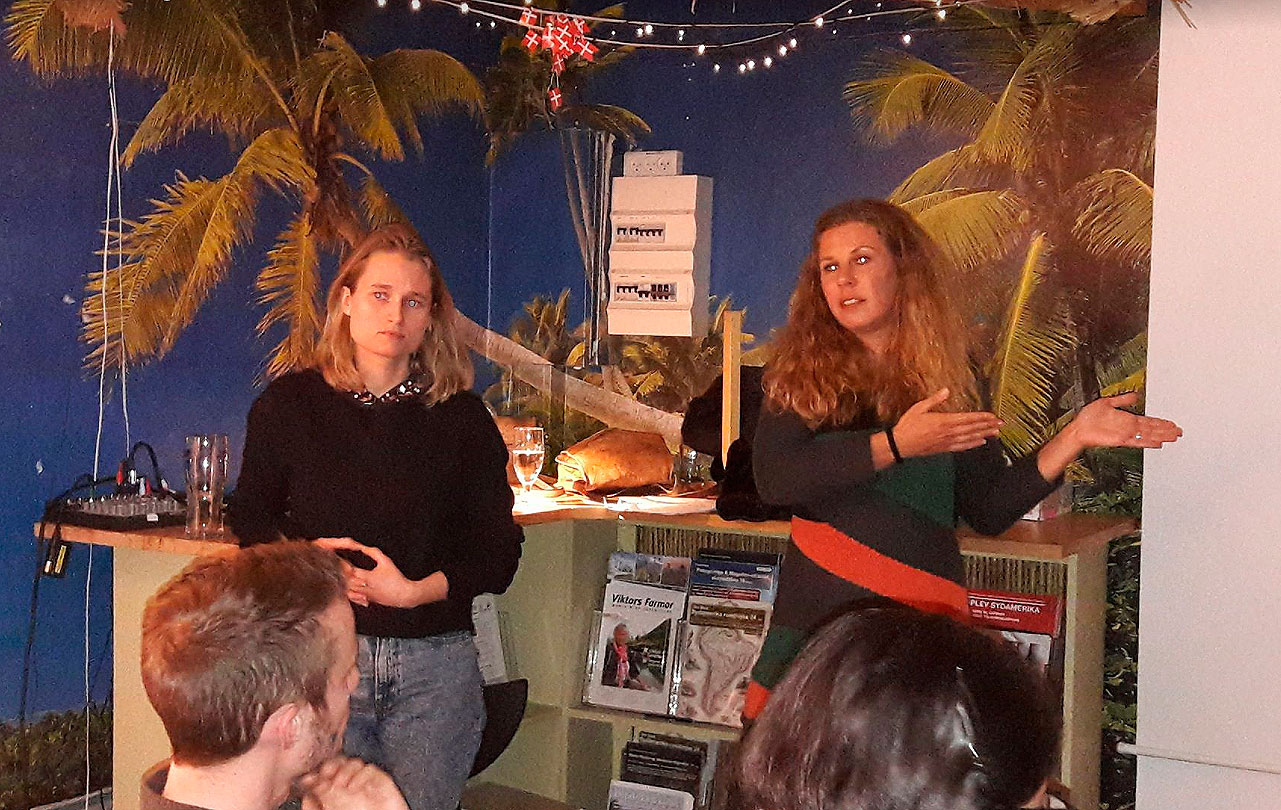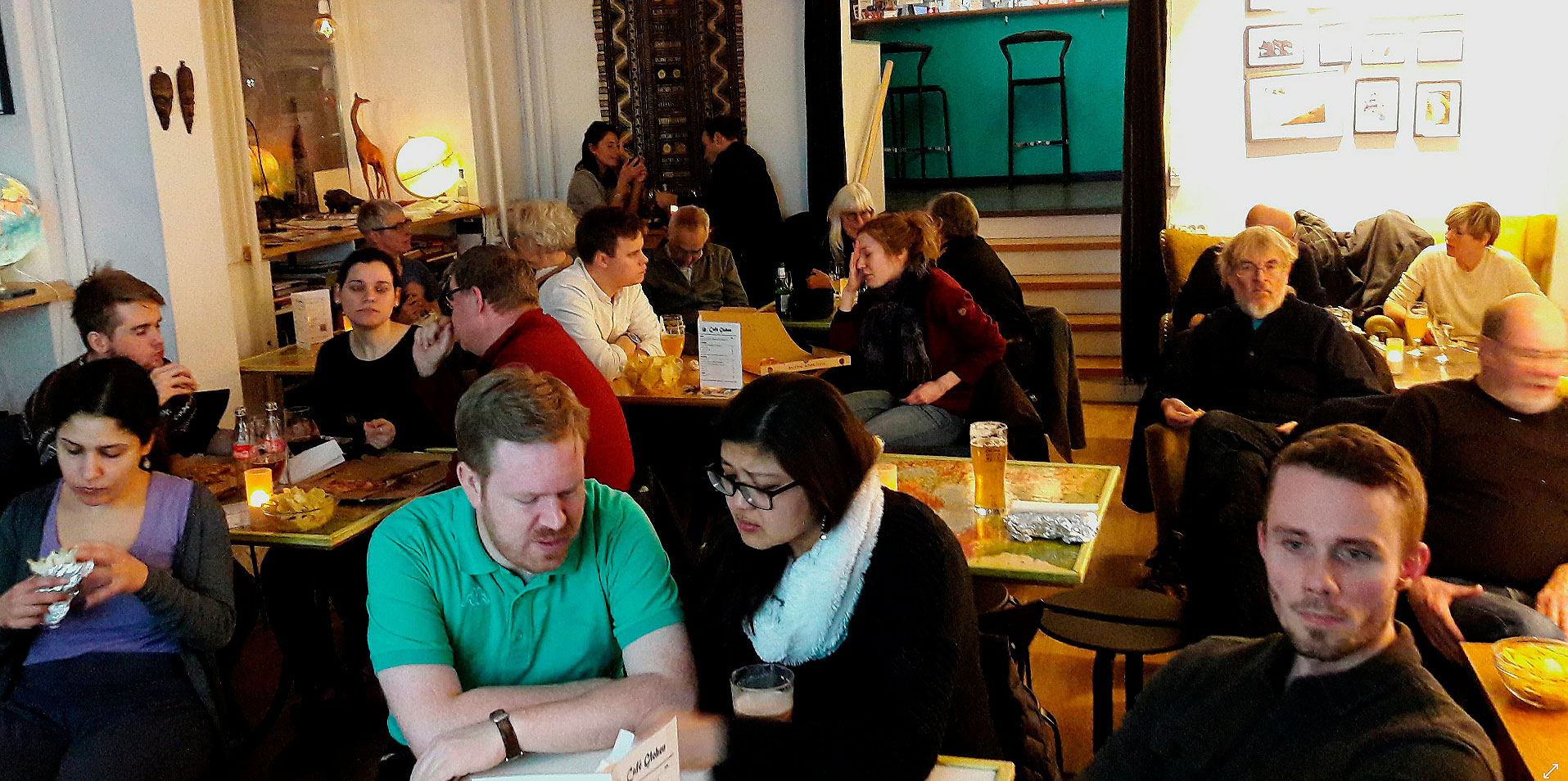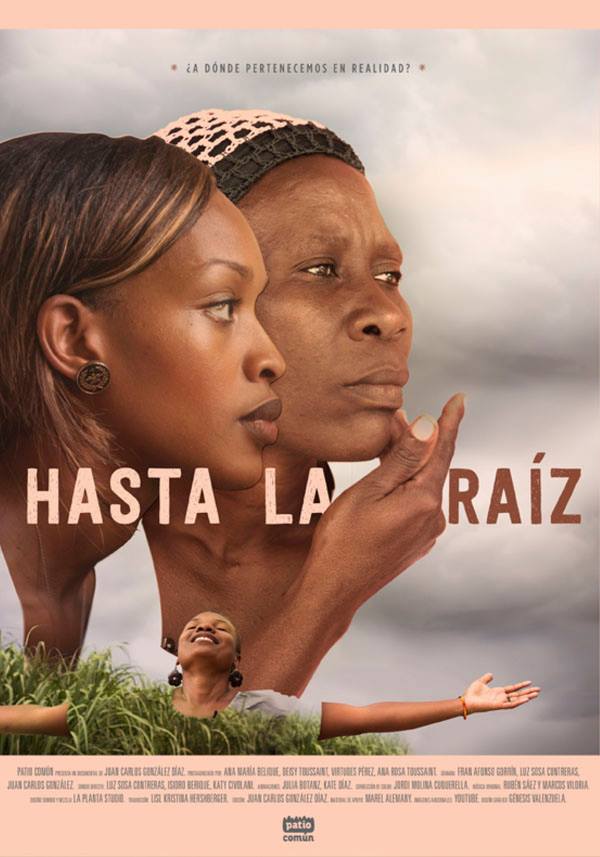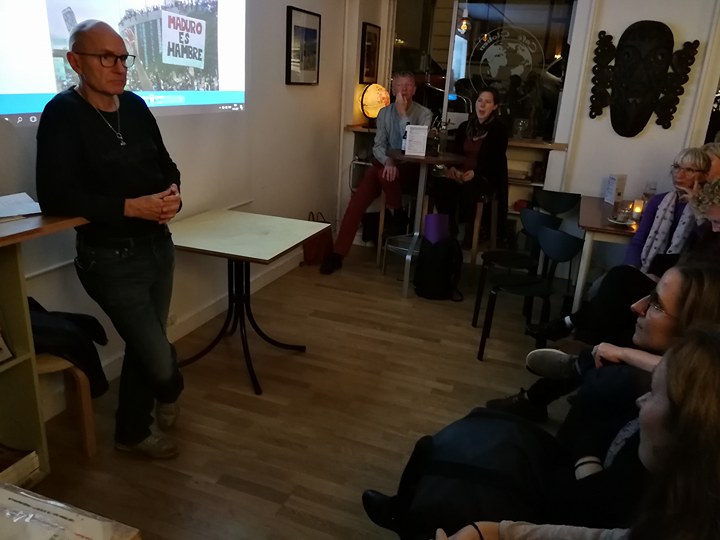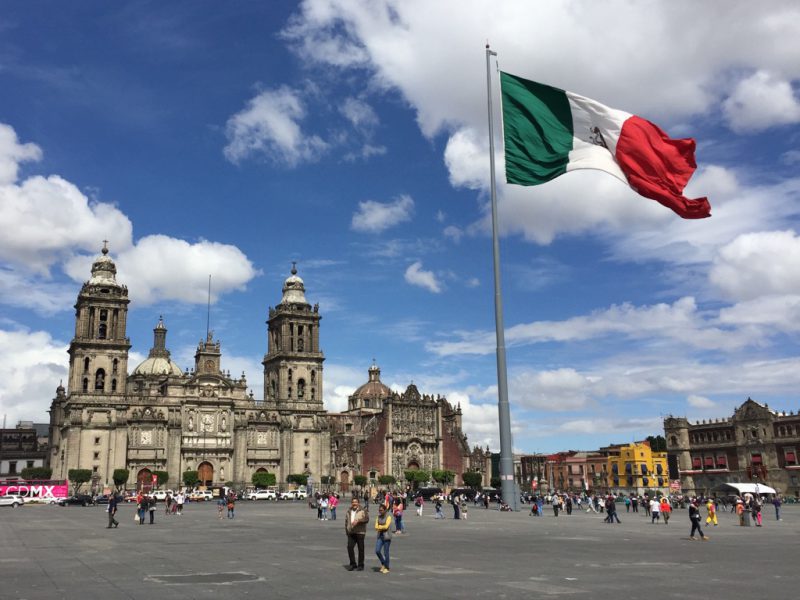
Program for heldagsseminar om Mexico lørdag den 24. november 2018, kl 9.30-16.30, Casa Latinoamericana, Høffdingsvej 10, Valby
Så kan vi endelig præsentere programmet for vores årlige heldagsseminar. Som vanligt bliver det en dag med mange spændende oplæg og netværk. Billetter kan købes på: https://billetto.dk/en/e/endagsseminar-om-mexico-tickets-315138
Prisen er kun 100 kr. for medlemmer (200 kr. for ikke-medlemmer) ekskl. gebyr. Vel mødt!
9.30-10.00: Registrering og morgenmad
10.00-10.15: Velkomst og praktiske oplysninger, v. NETLAs bestyrelse
10.15-11:00: “México, el país de las promesas y las expectativas”, María Emilia Casco Flores, cand.mag. kultursociologi, studieadjunkt, CBS (foredraget er på spansk)
11.00-11.45: “Ytringsfrihed i Mexico”, Jens Lohmann, journalist og forfatter (foredraget er på dansk)
11.45-12.45: Frokost
12.45-13.30: ”Business and Human Rights in Mexico – Implications for Danish Firms”, Jacobo Ramírez, Assistant Professor in Latin American Business Development, CBS (foredraget er på engelsk)
13.30-14.15:”El problema de la tierra: de Zapata al neo zapatismo”, Elena Ansotegui, CLAS, forsker og ekstern lektor, Københavns Universitet (foredraget er på spansk)
14.15-14.30: Kaffepause
14.30-15.15:“Bilingual Education in Mexico: Language, Politics and History in the Classroom”, Sarah Washbrook, Marie Curie Fellow, postdoc., Københavns Universitet (foredraget er på engelsk)
15.15-16.00:”Mexico i undervisningen: alle mexicanere går da med sombrero og spiser tacos!”, Kristina Pilmark og Rikke Olsen, forfattere til lærebogen Mosaico mexicano (foredraget er på dansk)
16.00-16.30: Netværk og rødvin
Omtale af foredrag
“México, el país de las promesas y las expectativas”, María Emilia Casco Flores, cand.mag. kultursociologi, studieadjunkt, CBS
Un breve análisis de México en las últimas dos décadas del S. XX y las primeras dos décadas del S. XXl a la luz de la economía mundial y de los grandes retos sociales. Por un lado, María Emilia presentará los datos económicos y de la competitividad de México durante los años 80 y 90 así como los datos de los últimos 5 años (2014 – 2018) para destacar que México cuenta con niveles de productividad favorables para el desarrollo de la sociedad en general. Y, por otro lado, presentará las expectativas que ha despertado en México el triunfo de Andrés Manuel López Obrador (AMLO), después de los resultados de las elecciones generales del 1º de julio de 2018. México es el país de América Latina que tiene por primera vez en su historia un partido de izquierda en el poder, el partido MORENA junto con la coalición del Partido de los Trabajadores y el Partido Encuentro Social (PES), evangélico y conservador – “Juntos haremos historia”. ¿Cuáles son las promesas y cómo podrá cumplir con ellas? (Foredraget er på spansk)
“Ytringsfrihed i Mexico”, Jens Lohmann, journalist og forfatter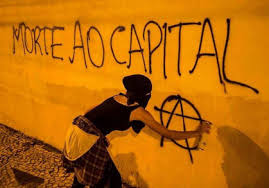
I den sidste overgangsperiode mellem Enrique Peña Nieto (EPN) og Andrés Manuel López Obrador (AMLO) har det stået klart, at EPN’s højtidelige løfter om at forbedre menneskerettighedssitua-tionen, sætte en stopper for drabene på journalister, forbedre journalisters sikkerhed og gøre en ende på straffriheden for forbrydelser begået mod journalister ikke har været andet end et systematisk og kynisk bedrag fra et system i krise. EPN’s seksårige regeringsperiode har været det mest voldelige over for medier og journalister: 1986 overfald fra december 2012 til februar 2018, en ny rekord, og 8 dræbte journalister bare i år.
I sit oplæg vil Jens Lohmann give et rids af ytringsfrihedens historie i Mexico fra 1968. Han vil give sit bud på mediernes rolle i forandringsprocessen, skabelsen af et civilsamfund i Mexico og AMLO’s valgsejr. Endelig vil han diskutere mulighederne for at få ægte ytringsfrihed i Mexico i en vanskelig forandringsproces med AMLO. (Foredraget er på dansk)
”Business and Human Rights in Mexico – Implications for Danish Firms”, Jacobo Ramírez, Assistant Professor in Latin American Business Development, CBS
Danish-Mexican Business Relations: According to the Mexican Embassy in Denmark. Denmark is the second commercial partner of Mexico among the Nordic countries, with a total trade of 675 million dollars per year in 2015, 14% more than in 2014. Mexico is currently the second importer of Danish products in Latin America. In Mexico there are 218 companies with Danish capital, mainly in the manufacturing industry (43.3%), construction (27.1%) and transport (9%).
Business and Human Rights: For business and human rights, in the “Global Agreement” between the European Union (EU) and Mexico, which took effect in 2000, Article 39 states: “The Parties may conduct joint projects in order to strengthen cooperation between their respective electoral bodies…” and, the incise Cestablishes: “the promotion of human rights and democratic principles” (European Union 2000). However, it was not until 2015 that the Mexican government publicly committed to developing a national program for business and human rights. The Danish Institute for Human Rights signed a Memorandum of Understanding (MoU) with Mexico to develop the country’s National Program on Business and Human Rights (The Danish Institute for Human Rights 2016). However, it is not yet implemented.
High security risk: Mexico is classified as high security risk country (IISS, 2018), because of armed conflict with non-governmental armed groups, such as drug cartels. The United Nations (UN) Working Group on Business and Human Rights conducted an assessment of Mexico in 2016 and concluded, “although the Mexican government has committed to moving forward on the human rights and business agenda, businesses continue to exhibit worrisome behavior” (Interview – Member of the Working Group on HR at UN).
The objective of this talk is to discuss the following question: What is the role, if any, of Danish firm in Mexico in relation to business and human rights?
”El problema de la tierra: de Zapata al neo zapatismo”, Elena Ansotegui, forsker og ekstern lektor, CLAS, Københavns Universitet

Esta presentación quiere abordar un problema muy recurrente y al que no se consigue dar solución en México. Tras las guerras de Independencia, la recién nacida república mexicana debe afrontar el reto de deshacer la estructura colonial donde los más vulnerables apenas poseían ningún derecho. Emiliano Zapata inicia años más tarde una revolución social basada en la exigencia de devolver las tierras a quienes las trabajan y en hacer de estás un bien común. El zapatismo se ha convertido en símbolo de la lucha por la tierra y la libertad a nivel internacional. Su historia es la de la resistencia ancestral de los pueblos originarios del sur de México que vio ciertos resultados en la reforma agraria durante el siglo XX. En esta presentación se tratarán temas como el Plan de Ayala o el artículo 27 de la Constitución mexicana para poder explicar las causas de la insurrección neo zapatista de 1994. El neo zapatismo, surgido del mismo deseo de justicia que la revolución de 1910, podría entenderse como la continuación de la lucha revolucionaria que debe crear un nuevo lenguaje para comunicar las demandas ancestrales indígenas y convertirlas en nuevas exigencias surgidas en un mundo globalizado.
Esta presentación propone una reflexión sobre la vigencia de Zapata en la creación del movimiento antisistema del EZLN y sobre la necesidad del pensamiento utópico en la lucha social indígena. (Foredraget er på spansk)
“Bilingual Education in Mexico: Language, Politics and History in the Classroom”, Sarah Washbrook, Marie Curie Fellow, postdoc., Københavns Universitet
 This presentation will give a brief history of bilingual education in Mexico and then discuss recent practices and policies, with a focus on the state of Chiapas. From the 1930s, the indigenista policies of Mexico’s revolutionary state promoted the assimilation of Indian peoples into the Spanish-speaking nation. In practice, though, rural schooling made little impact in those states with the largest indigenous populations and rates of illiteracy remained relatively high. In the 1990s, constitutional changes, the politicization of the quicentenary of the “discovery” of the Americas, the Zapatista uprising of 1994, the growing importance of multiculturalism, and Mexico’s ongoing process of democratization raised awareness of indigenous rights and the importance of bi-lingual education. In practice, though, state policies and provision have remained both inadequate and bounded by centralized structures and assimilationist goals. At the same time, local political movements, cultural organizations and Church groups have promoted bi-lingual education and the development of native literacy for a variety of aims including proselytising, cultural empowerment, social re-vindication and civil and political inclusion. What have been the impacts of these developments on bi-lingual education and native language literacy in Mexico? (Foredraget er på engelsk)
This presentation will give a brief history of bilingual education in Mexico and then discuss recent practices and policies, with a focus on the state of Chiapas. From the 1930s, the indigenista policies of Mexico’s revolutionary state promoted the assimilation of Indian peoples into the Spanish-speaking nation. In practice, though, rural schooling made little impact in those states with the largest indigenous populations and rates of illiteracy remained relatively high. In the 1990s, constitutional changes, the politicization of the quicentenary of the “discovery” of the Americas, the Zapatista uprising of 1994, the growing importance of multiculturalism, and Mexico’s ongoing process of democratization raised awareness of indigenous rights and the importance of bi-lingual education. In practice, though, state policies and provision have remained both inadequate and bounded by centralized structures and assimilationist goals. At the same time, local political movements, cultural organizations and Church groups have promoted bi-lingual education and the development of native literacy for a variety of aims including proselytising, cultural empowerment, social re-vindication and civil and political inclusion. What have been the impacts of these developments on bi-lingual education and native language literacy in Mexico? (Foredraget er på engelsk)
”Mexico i undervisningen: alle mexicanere går da med sombrero og drikker tequila!”, Kristina Pilmark og Rikke Olsen, forfattere til lærebogen Mosaico mexicano
Hvordan tegner man et nuanceret billede af et så stort og mangfoldigt land som Mexico i en undervisningsbog på kun 120 sider? Hvordan får man tydeliggjort Mexicos kulturelle kompleksitet, når teksterne er på et sprog, som eleverne kun mestrer i begrænset omfang? Og hvordan får man inddraget elevernes forforståelse af Mexico uden at falde i de klassiske stereotyper af mexicanere?
Kristina Pilmark, som underviser i spansk og samfundsfag på Herlev Gymnasium og HF, og Rikke Olsen, som er mangeårig rejseleder i Mexico, fortæller om deres arbejde med bogen ”Mosaico mexicano” (Gyldendal, 2016) og deres overvejelser omkring at undgå at bekræfte stereotype forestillinger i spanskundervisningen i gymnasiet. (Foredraget er på dansk)
Sted: Casa Latinoamericana, Høffdingsvej 10, 2500 Valby
Del Netla med dine venner på Facebook
 Tirsdag den 28. maj 2019 kl. 19.30.
Tirsdag den 28. maj 2019 kl. 19.30.

